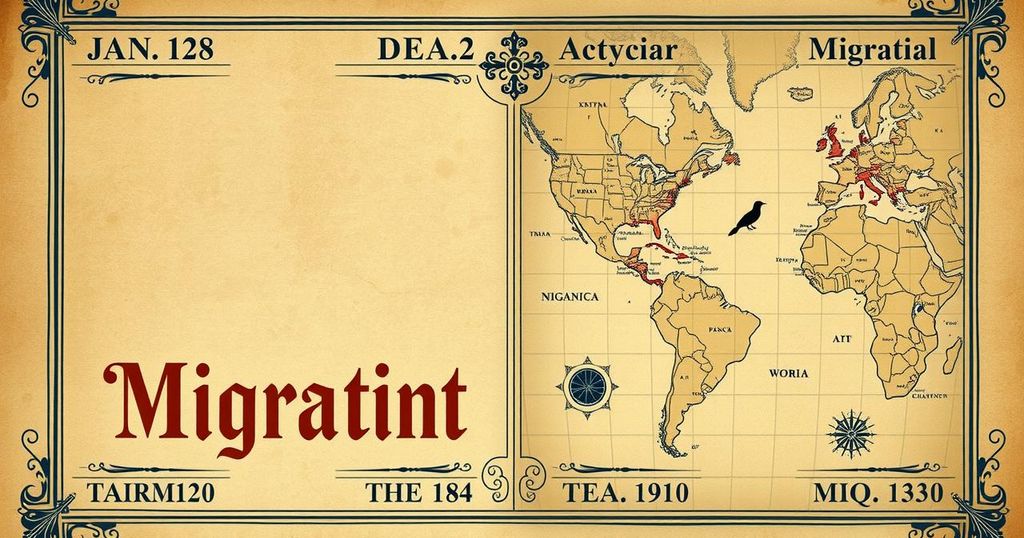The Use of the Alien Enemies Act for Deportations: A Controversial Decision by Trump

The Alien Enemies Act of 1798 allows the U.S. President to deport individuals from enemy nations without due process. Recently, President Trump used this law to deport Venezuelans allegedly tied to gangs. This decision has sparked criticism from human rights groups and raised legal concerns about its application in non-war contexts, highlighting a broader debate on immigration policy and civil liberties.
The Alien Enemies Act, enacted in 1798, empowers the President of the United States to detain and deport individuals from countries deemed as “enemies” without standard legal processes. It originated amid fears of war with France, allowing the government to apprehend those from hostile nations when declared war or invasions occur. Recently, this law was invoked by President Donald Trump to deport over 200 Venezuelans, alleging their gang affiliation posed a risk to national security.
As reported, among the 261 deported individuals, 137 were sent back to El Salvador under this law; this decision has incited considerable criticism from human rights organizations. Trump’s administration contended that these individuals were members of the Tren de Aragua gang, accused of threatening an “invasion” of the United States. Even after a federal judge issued a temporary block on these deportations, officials maintained that the deportations proceeded unlawfully due to their interpretation of the law.
Historically, the Alien Enemies Act has seen limited use, with prior instances occurring during significant conflicts such as World War II, where Japanese Americans faced imprisonment. Critics of Trump’s actions argue that invoking the Alien Enemies Act, especially under circumstances where the U.S. is not at war, represents a misuse of authority designed to facilitate broad removals of individuals, irrespective of evidence of wrongdoing. Attorney Lee Gelernt from the ACLU stated, “There’s no question in our mind that the law is being violated.”
Responses to Trump’s proclamation have been mixed, with El Salvador’s President Nayib Bukele dismissing the judicial intervention following the deportations. Conversely, the Venezuelan government condemned these actions as unjust and reminiscent of historical atrocities. Legal experts, such as Katherine Yon Ebright from the Brennan Center for Justice, have asserted that Trump’s application of this law was largely aimed at facilitating the removal of Venezuelans based on ancestry, rather than substantiated criminal conduct or gang activity.
In summary, the use of the Alien Enemies Act by President Trump to deport Venezuelans has raised significant legal and ethical concerns. Critics argue that the law is being misapplied in a context where the U.S. is not engaged in war, potentially targeting individuals unjustly based on nationality rather than credible evidence of gang involvement. The legal ramifications of this invocation and its implications for migrant rights remain contentious, reflecting ongoing debates about immigration policy and national security.
Original Source: www.bbc.com






